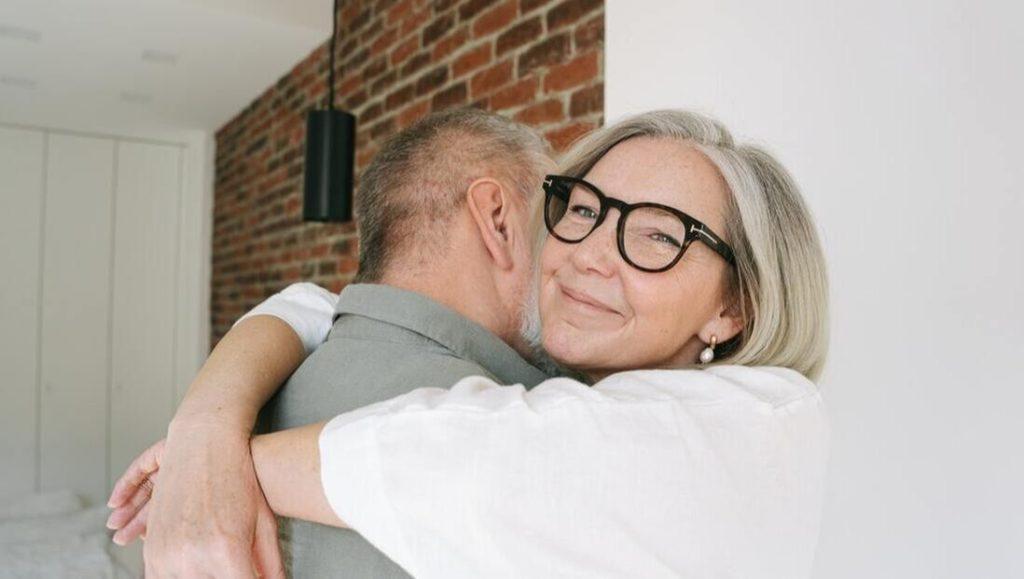Loneliness in relationship is common. According to a national survey conducted by AARP, 34% of married people above 45 years old reported feeling lonely. In my work as a couples therapist, loneliness is one of the main reasons that couples seek counseling. Although it is common, feelings of loneliness in your relationship is not healthy and should not be ignored. Loneliness is a sign of distress in a relationship that needs to be identified, validated, and addressed.
Signs of Loneliness in Relationship
Here are some common signs of loneliness in a romantic relationship:
- You don't feel heard, understood, and seen by your partner
- You feel like the last priority for your partner
- It is a struggle to get your partner's attention
- You hide your true feelings, opinions, preferences, or thoughts from your partner
- You don't feel that your partner is attracted to you and/or you don't feel attracted to your partner anymore
- You no longer touch, kiss, cuddle, or have sex
- You don't spend quality time together or have deep and meaningful conversations
- You feel like roommates, business partners, or platonic friends
- You are spending more time on screens when you are in the same room
- You go to other people to meet your needs, including emotional and sexual needs through an affair
- Most of your interactions lead to conflicts
- You don't have any conflicts because you don't want to bring up difficult conversations
- You feel that you and your partner are drifting apart
- You no longer know what your partner want and need
- You feel cold, empty, sad, depressed, anxious, or numb in your relationship
Why Do Couples Feel Lonely in Their Relationship?
Loneliness in a relationship can stem from causes within yourself and/or is co-created with your partner. The first step is to identify the causes of loneliness.

Loneliness Due to Your Internal Barriers
It is possible to be in a warm, supportive, and loving relationship with an emotionally available partner and yet still feel lonely. In that case, the loneliness may be due to:
- You treat yourself harshly. You may be critical, harsh, perfectionistic, and punitive toward yourself as a way of motivating yourself. Your relationship with yourself may be toxic, neglectful, or abusive. You may feel constantly dissatisfied with yourself, blame yourself, or feel like you do not measure up. As a result, it is hard to feel validated by, safe with, and intimately connected with others.
- You are disconnected with your feelings. You may have grown up in a family that never talked about emotions, dismissed your feelings, or was punitive toward "weak" emotions. You may have a hard time identifying what you are feeling deep down and instead, experience more surface emotions such as anxiety, stress, or anger. Without the ability to understand, feel, and express your emotions, you may be unable to experience deep intimacy, love, and connectedness with others.
- You are closed off and guarded toward others. If you have experienced trauma, betrayal, or significant loss in your past, you may be more guarded around others, even your romantic partner. You may hold the core belief that the world is an unsafe place and that people are not to be trusted. You may believe that if you let people in, they will hurt you or leave you. You may have consciously or unconsciously built up strong defense mechanisms that prevent others from coming close to you. Even when people try to connect with you and love you, you may not feel their love on the other side of your walls.
If any of these resonates with you, it is time to seek professional help from a therapist to address your relationship with yourself, break down the defenses and barriers within so you can finally feel the connectedness, love, and belonging that is provided by your partner.

Loneliness Caused by Relationship Distress
Loneliness can also be a sign that you and your partner are not feeling connected and something is amiss in your relationship. This could be a sign that you need to put more time and energy into the relationship to rebuild a foundation of trust, support, care, and attunement. In that case, the loneliness may be due to:
- You and your partner are unable to accurately see and understand each other. Feeling seen and understood by your partner is one of the foundations of healthy and secure attachment and bonding. Do you know each other's preferences, needs, desires, and goals? Do you pay attention to each other when you tell stories, express likes and dislikes, and convey your emotions? Do you take time to understand each other's inner worlds and emotional landscapes? Do you make space in your busy schedules to spend quality time together? If you have been together for a while, have you kept each other updated on who you have become as you have changed and grown as individuals?
- You and your partner are unable to see each other's good intentions. Loneliness can arise when you and your partner have become stuck in a negative cycle of blame, criticism, and withdrawal where you can no longer see each other's intentions from a positive light. You may have had multiple past experiences of hurt and pain with each other that you cannot see each other's attempts for repair and closeness.
- You and your partner are unable to have healthy conflict. You and your partner may struggle with having difficult conversations, understanding each other's different expectations and perspectives, communicating your needs, and resolving conflicts. You may both lack the tools and experience to listen to each other closely while caring for your own emotions and reactions, validate the other person's needs and emotions, apologize for behaviors that may have been hurtful to the other, and communicate love and respect while problem-solving together. Instead, you may be having explosive conflicts, icy silences, or simmering passive-aggressive actions or remarks. The lack of healthy conflict can lead to resentment, disconnection, and loneliness.

- You and your partner are not on the same team. If you and your partner are constantly fighting for fairness and you both hold a zero-sum, competitive, if-you-win-I-lose attitude about relationships, you may feel lonely because you are independently striving for different goals. Research has shown that loneliness increases in individualist cultures like the United States where we value the self over the collective. The book "The 80/80 Marriage" by Nate and Kaley Klemp presents a wonderful framework for healthy relationships where both partners strive for "shared success" and "radical generosity."
If you and your partner are experiencing these struggles in your relationship, seek help and support from a knowledgeable couples counselor who can help you communicate your needs, navigate conflict, and reestablish trust and intimacy.
Three Strategies to Talk to Your Partner About Loneliness in Your Relationship
- Assume good intentions. Start the conversation by assuming that your partner loves you and is trying their very best to care for and support you. Begin with a soft start such as "Honey, I have been feeling lonely lately. I know you care deeply about me. I would like to work together to find ways to feel more connected."
- Share your emotions. Take some time to identify the layers of your emotions and share them with your partner. On the surface, you may feel frustrated, angry, rejected, hopeless, anxious, and/or desperate. Underneath those emotions, you may feel hurt, scared, lost, confused, sad, or helpless. Share these emotions in a way that is not blaming, guilt-inducing, or critical. For example, "Babe, I am feeling confused and scared about why I am feeling lonely in our relationship. I am scared that maybe you are not interested in me anymore and I am not sure how to fix this. Sometimes I may get frustrated or irritated with you but underneath that, I am lost."
- Ask directly for what you need. If you know what is missing in your relationship and what will help you feel more connected, express your needs directly. For example, you can ask for more frequent date nights where you are not distracted or disrupted by children, work, or other people; you can set clear guidelines for conflict so that you have more productive and healthy conversations; or, you can ask your partner to learn about healthy relationships with you by reading books together or go to couples counseling.

Begin Couples Counseling in Our Ballard Office
Loneliness is a sign of distress in a relationship. You do not have to live with the feeling of emptiness, hopelessness, or despair. It is possible to feel deeply connected with your partner and satisfied in your relationship again. If you and your partner are struggling with loneliness and disconnection, you may benefit from couples counseling. Working with a therapist who understands the foundations of trust and intimacy can help you get unstuck from the negative cycle and rekindle the spark that drew you together in the beginning. Contact us to learn more about the evidence-based couples therapy approach that we use. Schedule a free 15-minute phone consultation to see if one of our couples counselors is a good fit for you.





